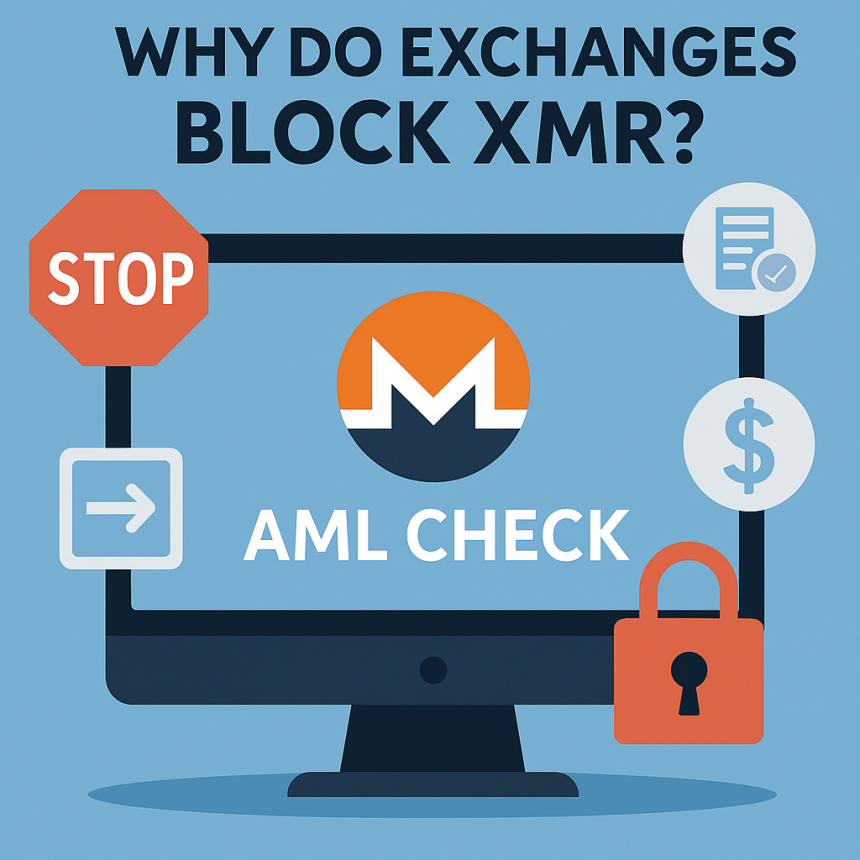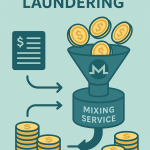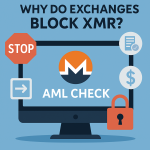If you’re a Monero (XMR) user, you’ve probably experienced or heard about exchanges blocking or delaying transactions, citing AML (Anti-Money Laundering) checks. But why exactly does this happen, and how can you ensure your transactions aren’t blocked?
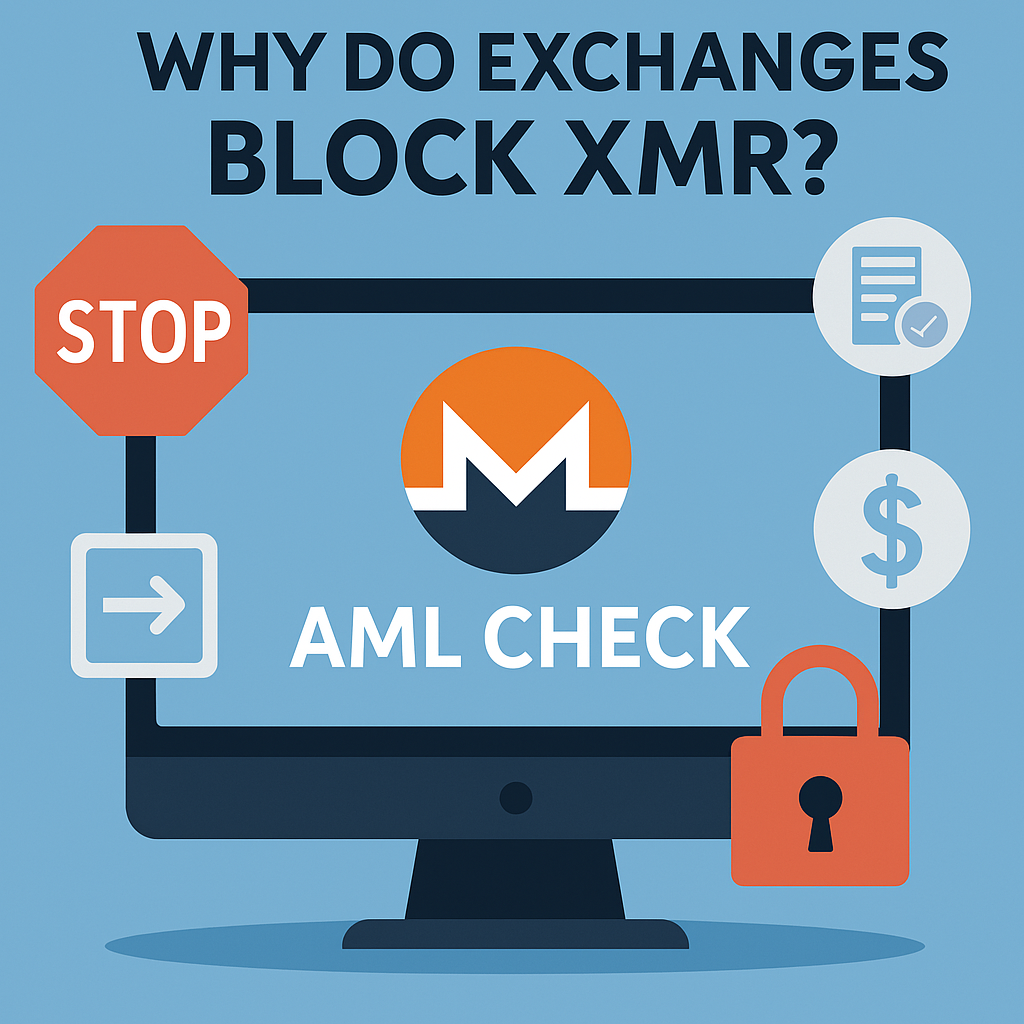
Understanding AML and Monero (XMR)
AML (Anti-Money Laundering) regulations are designed to prevent illicit activities, such as money laundering and terrorist financing. Regulators worldwide, guided by organizations like the Financial Action Task Force (FATF), require exchanges to perform checks on transactions involving cryptocurrencies, especially those with enhanced privacy features.
Monero (XMR) is a privacy-focused cryptocurrency that uses advanced cryptographic methods to hide transaction details, including sender, receiver, and transaction amounts. While this makes it attractive for privacy-conscious users, it also poses AML compliance challenges for exchanges.
Why is Monero Often Targeted by AML Checks?
Enhanced Privacy and Anonymity
Monero’s primary appeal—privacy—can also attract illicit actors attempting to conceal their financial activities. Because Monero transactions are anonymous by default, it’s difficult for exchanges and regulators to track the origin and destination of funds, making Monero a higher-risk cryptocurrency from an AML perspective.
Regulatory Pressure
Exchanges face intense scrutiny from regulators. The FATF guidelines explicitly mention privacy coins as high-risk, obligating exchanges to implement stringent AML checks or even restrict transactions involving coins like Monero.
AML Compliance Requirements
Exchanges implement AML checks to fulfill legal requirements and avoid heavy penalties. Monero transactions often trigger these checks because they cannot easily demonstrate compliance due to their opaque nature.
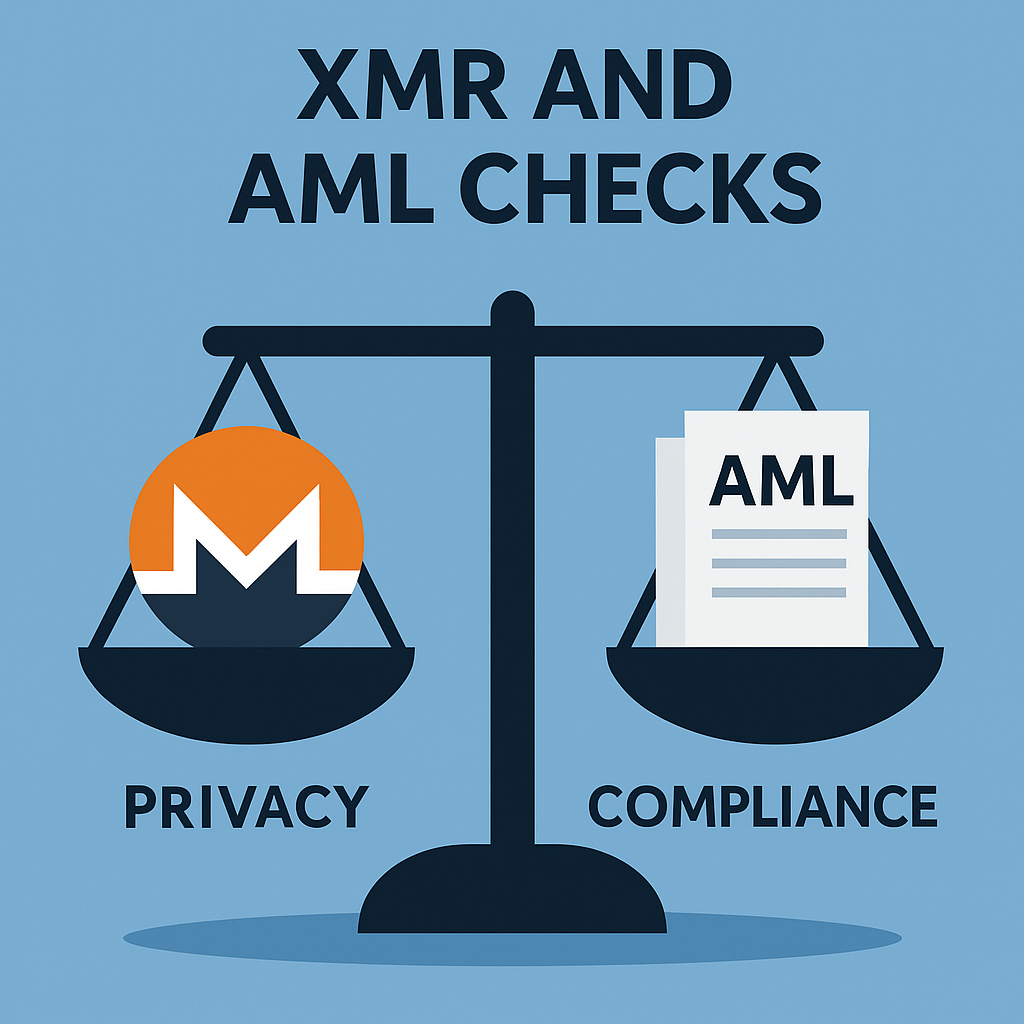
How Can XMR Users Avoid AML-related Transaction Blocking?
To minimize the risk of your Monero transactions getting blocked or delayed, follow these guidelines:
1. Choose Exchanges Wisely
Opt for exchanges with clear policies regarding privacy coins. Some exchanges openly support Monero and have established compliant AML procedures.
2. Complete Verification Procedures
Completing KYC (Know Your Customer) processes on exchanges that support XMR can reduce the likelihood of transaction issues, as verified users generally face fewer AML-related blocks.
3. Smaller and Frequent Transactions
Smaller transactions typically draw less attention compared to large, infrequent ones. Breaking large deposits or withdrawals into smaller, consistent amounts can mitigate the risk of triggering AML flags.
4. Maintain Transaction Records
Keeping clear records of your Monero transactions, even privately, can help if an exchange requests additional verification or clarification.
Conclusion
While Monero offers unparalleled privacy advantages, it also comes with increased AML compliance risks. Exchanges are compelled by regulatory pressures, especially from the FATF, to scrutinize transactions involving XMR closely. By selecting the right platforms, completing verifications, and managing your transactions smartly, you can significantly reduce the chances of encountering blocked or delayed Monero deposits.




